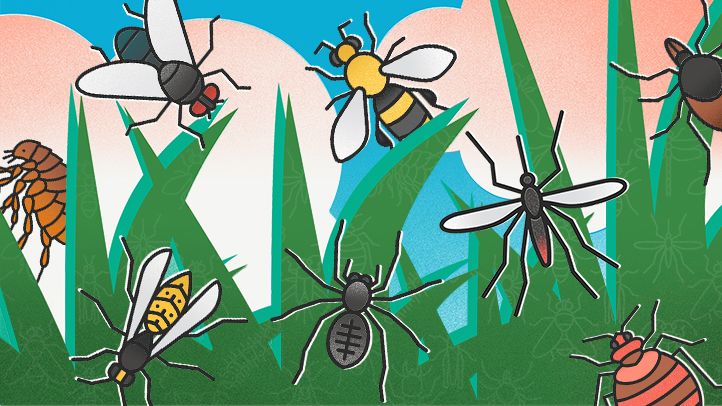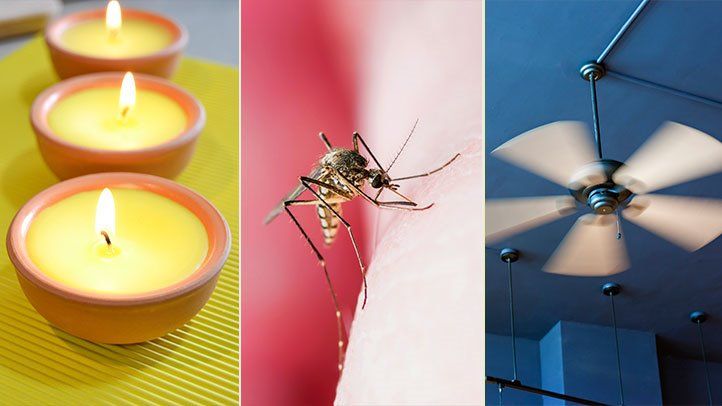Dengue virus (DENV) is spread by bites from Aedes mosquitoes, the same genus of mosquito that spreads the Zika virus and the virus that causes yellow fever.
There are four subtypes (called “serotypes”) of dengue. Each serotype can infect you only once, but infection with one serotype doesn’t provide immunity against the other serotypes, so you can still become infected by the other serotypes of dengue.
With your first dengue infection, you may have few or no symptoms. Unfortunately, the risk for severe dengue increases with each infection.
Signs and Symptoms of Dengue Fever
Classic symptoms include:
- Fever
- Headache and pain behind the eyes
- Severe muscle and joint pain (the source of dengue's nickname, "breakbone fever")
- Extreme fatigue
- Rash
- Bloody stools
- Nausea and vomiting
After defervescence, people either start to get better or they get much worse, developing severe dengue.
- Abdominal pain or tenderness
- Persistent vomiting
- Lethargy or restlessness
- Mucosal bleeding, such as bleeding gums or nosebleeds
- Liver enlargement
- Fluid retention
Causes and Risk Factors of Dengue Fever
The virus subtypes that cause dengue fever are spread by female mosquitoes of the species Aedes aegypti, and less commonly by Aedes albopictus.


Bug Bite Danger Zones — Summer 2020 Alert
Treatment and Medication Options for Dengue Fever
As with most viruses, treatment options for dengue will only manage its symptoms.
Pain relievers and fever reducers that don't make bleeding worse may be taken, such as Tylenol (acetaminophen).
Prevention of Dengue Fever


7 Natural Ways to Prevent Mosquito Bites
Preventing Mosquito Bites
The primary way to prevent infection with dengue is to prevent mosquito bites in geographic regions where dengue is present. Light-colored clothing and insect repellent can help, as can window screens and mosquito netting.
Source Reduction at Mosquito Breeding Sites
Infecting Mosquitoes With Competing Bacteria
Dengvaxia Vaccine
The FDA has approved the vaccine to be given to people who:
- Are age 9 to 16
- Live in areas where dengue is endemic; endemic areas under the FDA’s purview include the U.S. territories of American Samoa, Guam, Puerto Rico, and the U.S. Virgin Islands
- Have previously been infected with dengue, as shown by medical records or a blood test that shows immunity
Research and Statistics: Who Has Dengue Fever?
In the last two decades, the number of cases reported to the World Health Organization has increased eightfold. It is estimated that there are approximately 400 million dengue infections per year, with about 100 million of those cases manifesting clinically.
Related Conditions of Dengue
Resources We Love
World Health Organization (WHO)
WHO provides a global, comprehensive look at dengue and severe dengue. In addition to a fact sheet on the topic, WHO has the latest news on the disease and a helpful Q&A page.
Centers for Disease Control and Prevention (CDC)
The CDC has detailed info on dengue — covering symptoms and warning signs to watch for — as well as excellent advice on prevention and mosquito control.
World Mosquito Program
The World Mosquito Program is a nonprofit research and educational organization that is working to eradicate diseases spread by Aedes mosquitoes worldwide.
Editorial Sources and Fact-Checking
- WHO Region of the Americas Records Highest Number of Dengue Cases in History; Cases Spike in Other Regions. World Health Organization. November 21, 2019.
- Dengue for Healthcare Providers: Clinical Presentation. Centers for Disease Control and Prevention. May 3, 2019.
- Dengue and Severe Dengue. World Health Organization. June 23, 2020.
- Dengue and Severe Dengue, Frequently Asked Questions. World Health Organization.
- Dengue: Symptoms and Treatment. Centers for Disease Control and Prevention. November 23, 2020.
- Oliveira M, et al. Joint Ancestry and Association Test Indicate Two Distinct Pathogenic Pathways Involved in Classical Dengue Fever and Dengue Shock Syndrome. PLOS Neglected Tropical Diseases. February 2018.
- Aedes Albopictus – Factsheet for Experts. European Centre for Disease Prevention and Control. December 20, 2016.
- Sharp TM, et al. Dengue and Zika Virus Diagnostic Testing for Patients With a Clinically Compatible Illness and Risk for Infection With Both Viruses. Morbidity and Mortality Weekly Report (MMWR). June 14, 2019.
- Dengue Virus Antigen Detection: NS1. Centers for Disease Control and Prevention. May 3, 2019.
- Dengue Fever: Diagnosis and Treatment. Mayo Clinic. November 18, 2020.
- Dengue Control: Three-Year Indonesia Trial Shows Promising Results. World Health Organization. July 9, 2020.
- Callaway E. The Mosquito Strategy that Could Eliminate Dengue: Infecting the Insects With a Bacterium to Stop Disease Transmission Produces 'Staggering' Reduction in Cases. Nature. August 27, 2020.
- First FDA-Approved Vaccine for the Prevention of Dengue Disease in Endemic Regions. U.S. Food and Drug Administration (FDA). May 1, 2019.
- Dengue and COVID-19. Centers for Disease Control and Prevention. June 25, 2020.
- Is It Dengue or Is It COVID-19. Centers for Disease Control and Prevention. June 24, 2020.
- Flaviviridae. Centers for Disease Control and Prevention. June 18, 2013.
- Dengue Fever. Centers for Disease Control and Prevention (CDC).
- Dengue and Severe Dengue Infographic. World Health Organization (WHO).



































